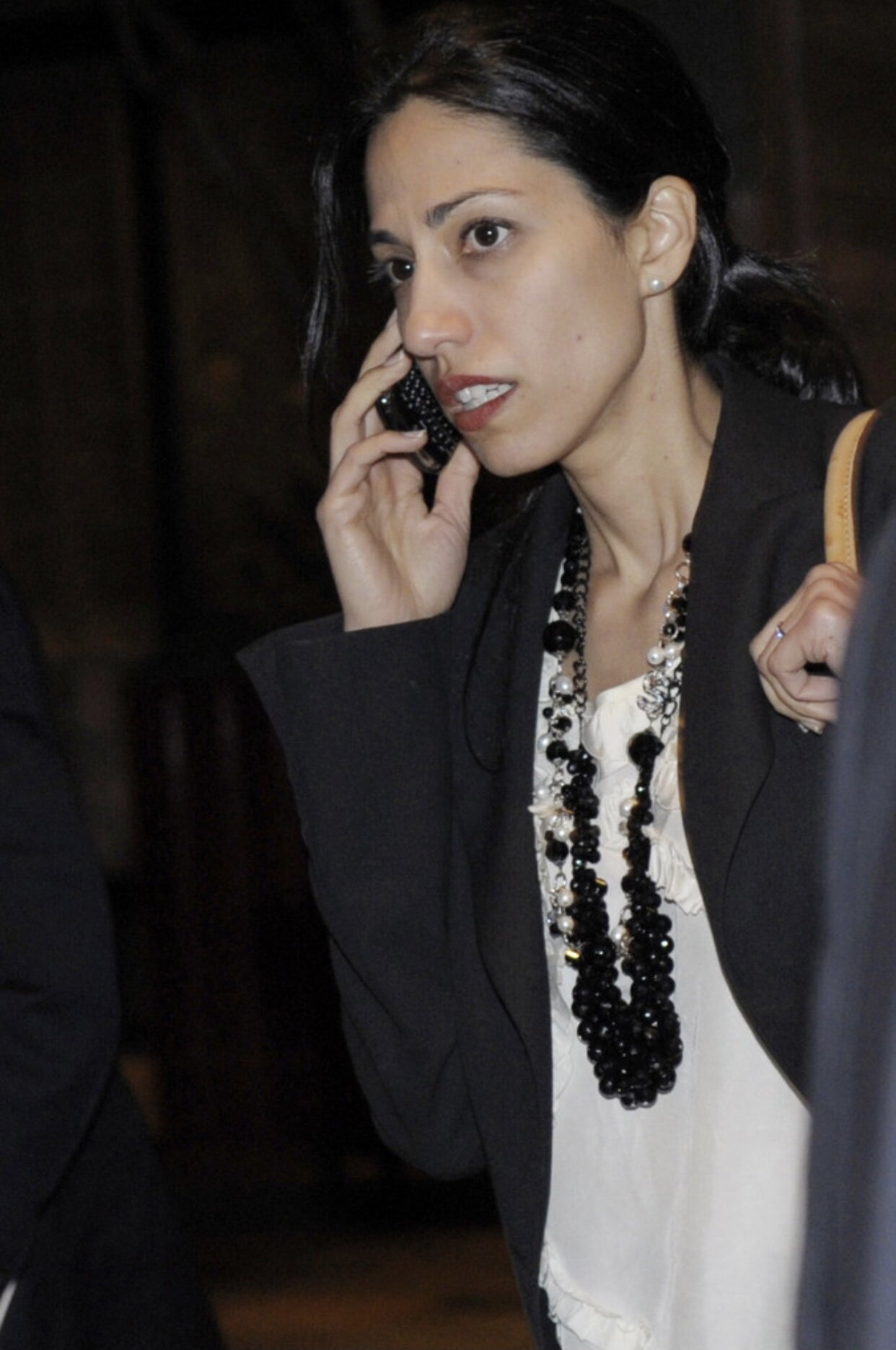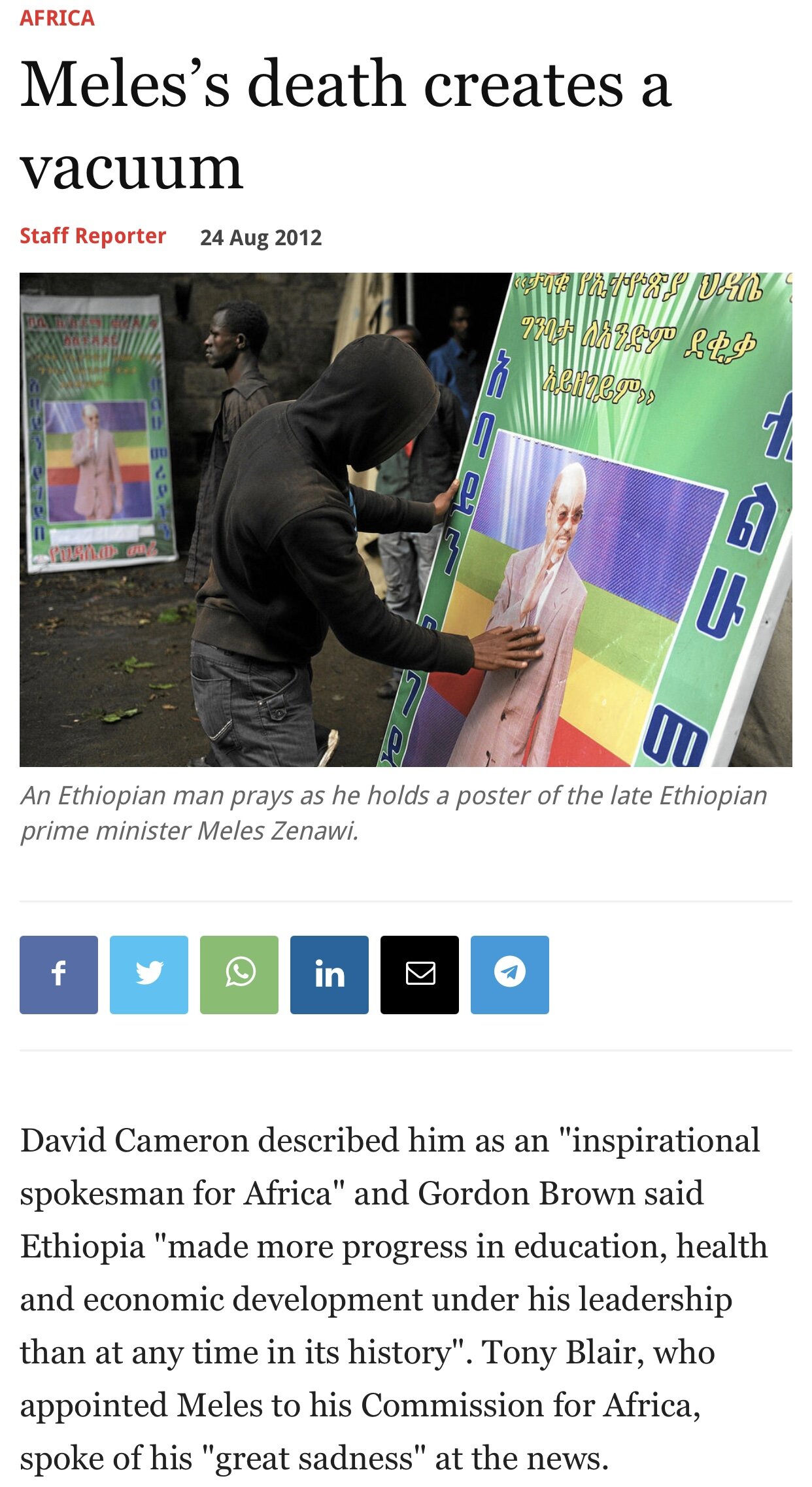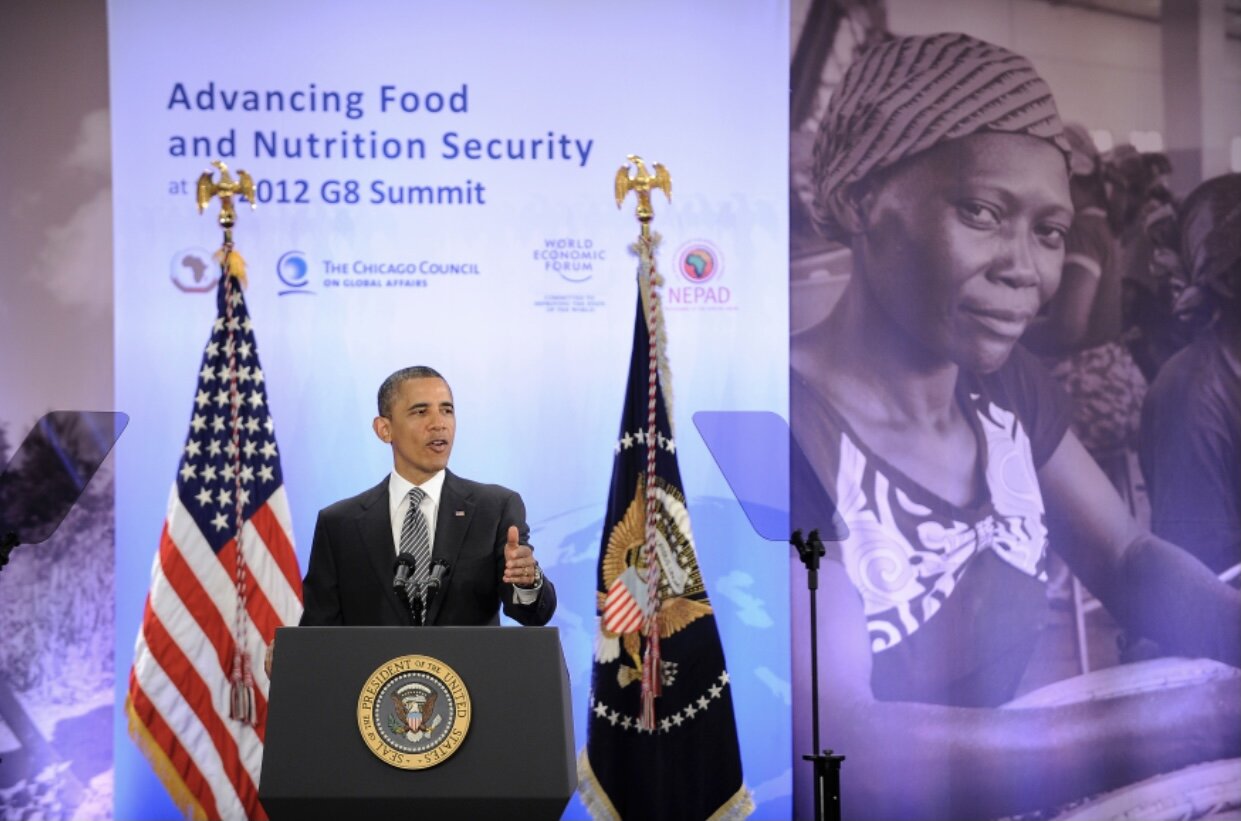Zenawi was a shrewd technocrat known for "imprisoning his political opponents, withholding development assistance from restive areas, stealing elections, and cracking down on civil society NGOS."
Meles Zenawi and Hillary Clinton
He sentenced journalists (including two Europeans) to lengthy jail terms. As The Atlantic put it, "From a human rights perspective, Zenawi's rule has been abusive, heavy-handed, and self-interested."
On the plus side, under his rule Ethiopia also experienced rapid economic growth. And it was this economic growth that had led Bill Clinton to praise him as part of a “new generation' of African leaders."
Zenawi's ability to curry favor with some in the West while being a brutal dictator at home led one observer to note, "He was a charmer in Geneva and London. He was a stern, even brutal, autocrat at home." Despite his mixed record, many in the West - including the Clintons - embraced and legitimized him.
According to a leaked State Department cable, in 2007, on his way to attend the G20 summit in Pittsburgh, Zenawi was invited to attend Clinton Foundation events in New York. When Hillary Clinton became secretary of state in January 2009, Ethiopian officials interacted confidently with US diplomats.
Despite public statements coming from Washington about promoting human rights in Ethiopia and Africa, Ethiopian officials remained unfazed. In February 2010 Hillary's undersecretary of state, Maria Otero, met with the dictator and raised questions about the plight and arrest of an opposition figure named Birtukan Midekssa.
Zenawi told her that Midekssa will "vegetate in jail, forever," according to leaked State Department cables obtained through WikiLeaks. As far as opposition groups were concerned, he said, “we will crush them with our full force."
It was a shocking display of disrespect, given that the United States was sending his government half a billion dollars a year. As Foreign Affairs put it, "Washington has expressed its concern about these issues to the Ethiopian government, and the Ethiopian government has reacted not only negatively but also insultingly - despite receiving $533 million in U.S. assistance in fiscal year 2010."
Zenawi aggressively went after not only domestic political opponents but also American organizations, like the US Chamber of Commerce and Jimmy Carter's Carter Center, that were working in the country.
According to another WikiLeaks State Department cable, diplomats raised concerns with Zenawi about his new policy requiring organizations like the US Chamber of Commerce and the Carter Center to seek government approval to use US money sent from the United States in Ethiopia.
Zenawi said as far as the Carter Center was concerned, "Maybe we are better off if they do not come." He was equally dismissive when diplomats raised questions about how the government restricted access to Western food aid in certain regions for political reasons.
In 2012 Ethiopia was among the top sub-Saharan African recipients of US aid, with $707 million in planned aid. As secretary of state, Hillary was required to evaluate whether countries receiving American aid were transparent in how the money was spent.
The Department of State, Foreign Operations, and Related Programs Appropriation Act prohibits U.S. assistance to the central government of any country that does not meet minimum standards of fiscal transparency.
Strategist and consultant Huma Abedin
Unless, that is, Hillary decided to grant the country a waiver. State Department officials determined that Ethiopia failed to meet the transparency requirement. According to leaked cables from the embassy, Ethiopia does not, however, have specific laws or regulations governing the public disclosure of revenues and expenditures in national budgets.
There are no independent auditors of government budget data, so information is taken at face value. International economists generally focus their criticism on the number of extra-budgetary items that are omitted from the national budget.
The link is here.
Notably, the national budget does not include over 100 state-owned enterprises or the over 70 "endowment" companies owned by the ruling political party. The list of offenses continued and concluded by noting, "In the past year, there have not been any events that affected Ethiopia's budget transparency and the Government of Ethiopia has not made any steps towards improving its fiscal transparency."
When US diplomats asked the Ethiopian minister of finance about the national budget, he “maintained that he does not have access" to complete books either. Diplomats raised the "message to GOE [Government of Ethiopia] officials regarding Ethiopia's need to comply with USG [US government] fiscal transparency guidelines; however, this message has fallen on deaf ears and only seems to aggravate relations."
Despite the lack of compliance and the apparent lack of interest in moving toward transparency, Hillary granted the government of Ethiopia a waiver, which allowed it to avoid transparency requirements.
Al Amoudi
Someone who has directly benefited from US assistance to Ethiopia is Sheikh Amoudi. Amoudi owned Ethiopia's Dashen Bank, which he used to finance his other companies and projects. According to Dashen's annual reports, the bank reaps financial reward through the USAID's Development Credit Authority, which is funded by US taxpayers and provides Ethiopian loan guarantees.















